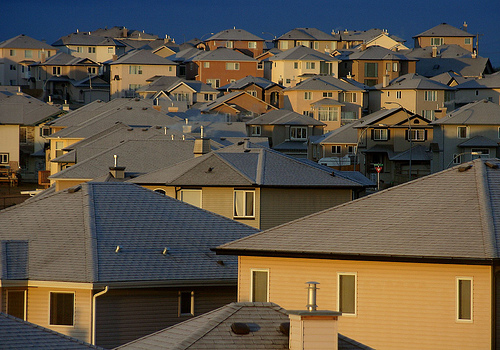Homes and strip malls in America's outer-ring suburbs, which contained most of the country's most expensive homes in the 1990s, are now worth less than what it cost to build them. And the land beneath them is worth effectively zero, says Brookings Institution senior fellow Christopher B. Leinberger, in a powerful op-ed arguing that the future of the country is urban and walkable.
Simply put, there has been a profound structural shift — a reversal of what took place in the 1950s, when drivable suburbs boomed and flourished as center cities emptied and withered.
What's driving this transition? The two biggest demographic groups in the country, Baby Boomers and their children, the Millennials, who collectively represent half the population, don't want to have anything to do with the suburbs.
Many boomers are now empty nesters and approaching retirement. Generally this means that they will downsize their housing in the near future. Boomers want to live in a walkable urban downtown, a suburban town center or a small town, according to a recent survey by the National Association of Realtors.
The millennials are just now beginning to emerge from the nest — at least those who can afford to live on their own. This coming-of-age cohort also favors urban downtowns and suburban town centers — for lifestyle reasons and the convenience of not having to own cars.
Almost all of America's most valuable housing is now in dense urban areas that were slums just thirty years ago. This is more than just gentrification — it's a hard correction so swift that it's been teeth-rattling for everyone who doesn't have the resources to keep up, which is most of us.
Leinberger points out that the only way for cities to thrive in this new world is to stop pretending that "alternative" transportation — i.e. mass transit — is a fringe phenomenon. Cities that don't enable a car-free existence simply aren't going to last, or if they do, it will be in a much-diminished state.



